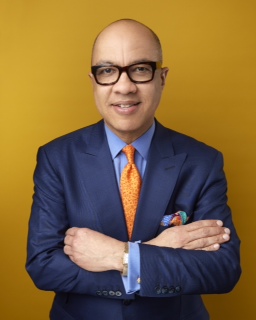 After the Election, Building the Beloved Community
After the Election, Building the Beloved Community
by Darren Walker, president of the Ford Foundation.
Re-posted with permission from the Ford Foundation.
A new season has begun, but the contemplations and reverberations of election week are still very much with me. I know from countless conversations that they are still with you, too.
Rightly so. There is so much at stake for our country and our people right now, so much injustice to newly assess, understand and address. This is the work we are all now engaged in. It is vital work, and I am in awe of the energy and urgency you have brought to it over the past several days.
Your efforts to assess, understand and address injustice with fresh eyes is a statement of profound hope. Watching it unfold with gathering force has reminded me of the words of Dr. Martin Luther King Jr., that “darkness cannot drive out darkness; only light can do that”—that “hate cannot drive out hate; only love can do that.”
You are the light, and you are the love. The world desperately needs both.
As I go through my own efforts to assess and understand the last year in our national life, I find myself asking uncomfortable questions about my own institution and the social sector as a whole.
For instance: Have we neglected to recognize and respond to working-class people, regardless of race and geography? Have we heard and heeded the frustration of America’s hollowed-out middle class, anxious and unsettled as their economic security erodes? Have we been too focused on familiar ground, overlooking the wider circumstances of suffering and inequality?
Answers are not easy to come by. But I am committing the Ford Foundation to deeper listening and learning. We must be open to the idea, for example, that as the demography and geography of inequality spreads outward, our own efforts may need to become more inclusive, embracing a variety of very different communities.
After all, exclusion and hardship are widely shared. Layers of injustice abound. Our work must reach farther than it ever has.
Nearly a half century ago, during the spring of 1968, Dr. King delivered his final sermon. The moment endures in American memory because on the evening before his assassination, Dr. King shared his view from the mountaintop.
But too often forgotten are Dr. King’s other words that extraordinary night in Memphis: his advocacy for what he called “dangerous unselfishness” inherent in what he called the “beloved community.”
“The world is all messed up,” he said then. “The nation is sick. Trouble is in the land; confusion all around,” he declared. “But I know, somehow, that only when it is dark enough can you see the stars.”
So, too, should it be for us—right here and now.
The year 2016 is not 1968, or 1860, or 1776. Your moment—our moment—to protect and pass along the torch of justice is unique. But we can, and must, learn from history that the greatest threat to our democracy is not terrorism, nor environmental crisis, nor nuclear proliferation, nor the results of any one election. The greatest threat to our democracy is hopelessness: the hopelessness of many millions who expressed themselves with their ballots, and the hopelessness of many millions more who expressed themselves by not voting at all.
If we are to overwhelm the forces of inequality and injustice—if we are to dedicate ourselves anew to the hard and heavy lifting of building the beloved community—then the cornerstone of our efforts must be hope.
I choose to be hopeful because only through the pursuit of justice can we heal.
Thank you for your indispensable contributions to hope—for shining bold and bright against the midnight sky; for embracing your special obligation to promote “dangerous unselfishness”; for lighting the path forward.
As Dr. King said during his last evening on this earth, “we’ve got some difficult days ahead.” But friends, together, we are poised—and prepared—to continue marching forward.
